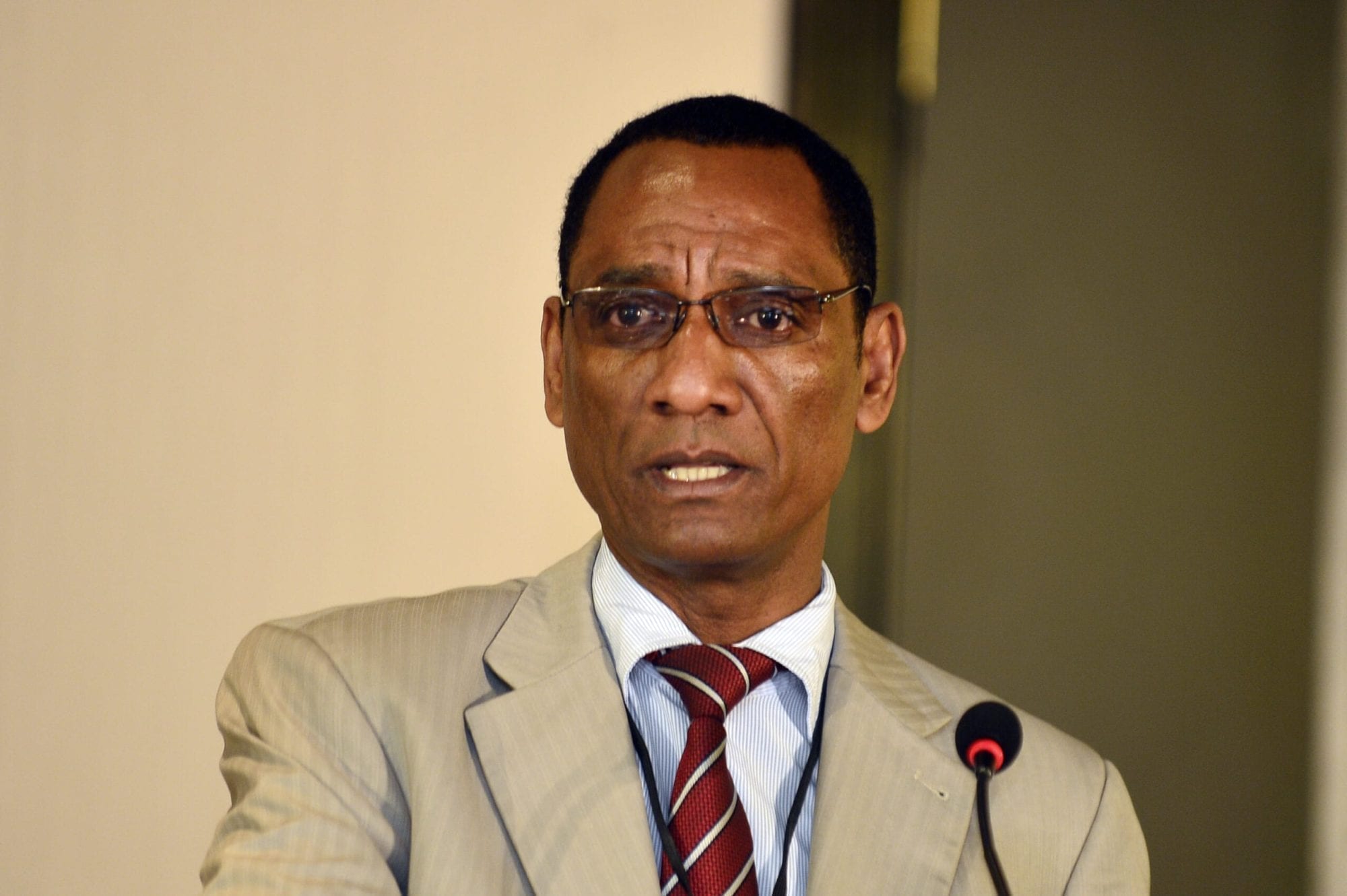
Jan 25, 2017
The respect and dignity of labor migrants is under increasing threat, says Kassahun Follo, first vice president, International Trade Union Confederation-Africa, as migrant workers are demonized and denied basic rights, actions driven by exploitation, racism and xenophobia.
Follo spoke this morning at the opening of the January 25–27 Solidarity Center conference, “Achieving Fair Migration: Roles of African Trade Unions and Their Partners” in Johannesburg, South Africa, where more than 120 union leaders, migrant worker rights advocates and top international human rights officials from nearly two dozen countries and 57 organizations are gathering to share strategies for empowering migrant workers and map out plans for changing policies and laws to provide migrant workers fundamental workplace rights.
(Follow the conference on Twitter with the hashtag FairMigration and check out Solidarity Center on Facebook for regular updates.)
Conference Seeks to ‘Put an End to Employer Abuse of Migrant Workers’
The conference’s opening day focused on the feminization of migration, the varied challenges of migration flows at the region=al level in East, Southern and West Africas, and the global threats of xenophobia and discrimination against migrant, included a discussion with migrant domestic workers.
The conference goal, says Peter Hardie, Solidarity Center country program director, is to “create concrete plans, multilateral and bilateral dialogue to drive change to put a permanent end to the abuses of migrant workers by their employers.”
Worldwide, some 150 million people have traveled across borders and are right now migrant workers in another country and send home global remittances totaling $601 billion dollars. In Africa, 34 million workers are migrants — the majority moving across borders to search for decent work. Half of migrant workers are women, who are especially targeted for abuse and exploitation, often due to their marginalization in the informal economy.
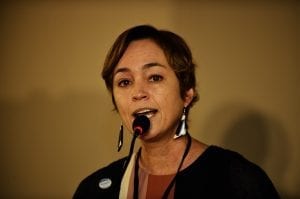
“Making sure working people have the right to form trade unions is the heart and soul of our work,” Credit: Solidarity Center/Evidence Holdings
Although labor migration fuels the world economy, it takes place in a global economy set up entirely on the belief that the free movement of capital and profit across borders is desirable, even sacrosanct; and that lack of regulation is what is needed to make this happen.
“Yet there has been no commensurate systemic expansion of the rights of the working people to go along with the incredible expansion of the rights of business. In fact, the opposite has occurred,” says Solidarity Center Executive Director Shawna Bader Blau, speaking during the conference opening plenary.
Bader-Blau urged participants to build national, cross-border and global coalitions to advance human rights in trade agreements and regional economic integration programs, work harder together to end the double standard of investor rights over worker rights and hold governments accountable to the creation of decent work at home “so migration is truly a choice.”
“Making sure working people have the right to form trade unions is the heart and soul of our work,” says Bader-Blau. The conference must look at how unions “make sure migrant workers have these rights.”
Read Bader-Blau’s full speech here.
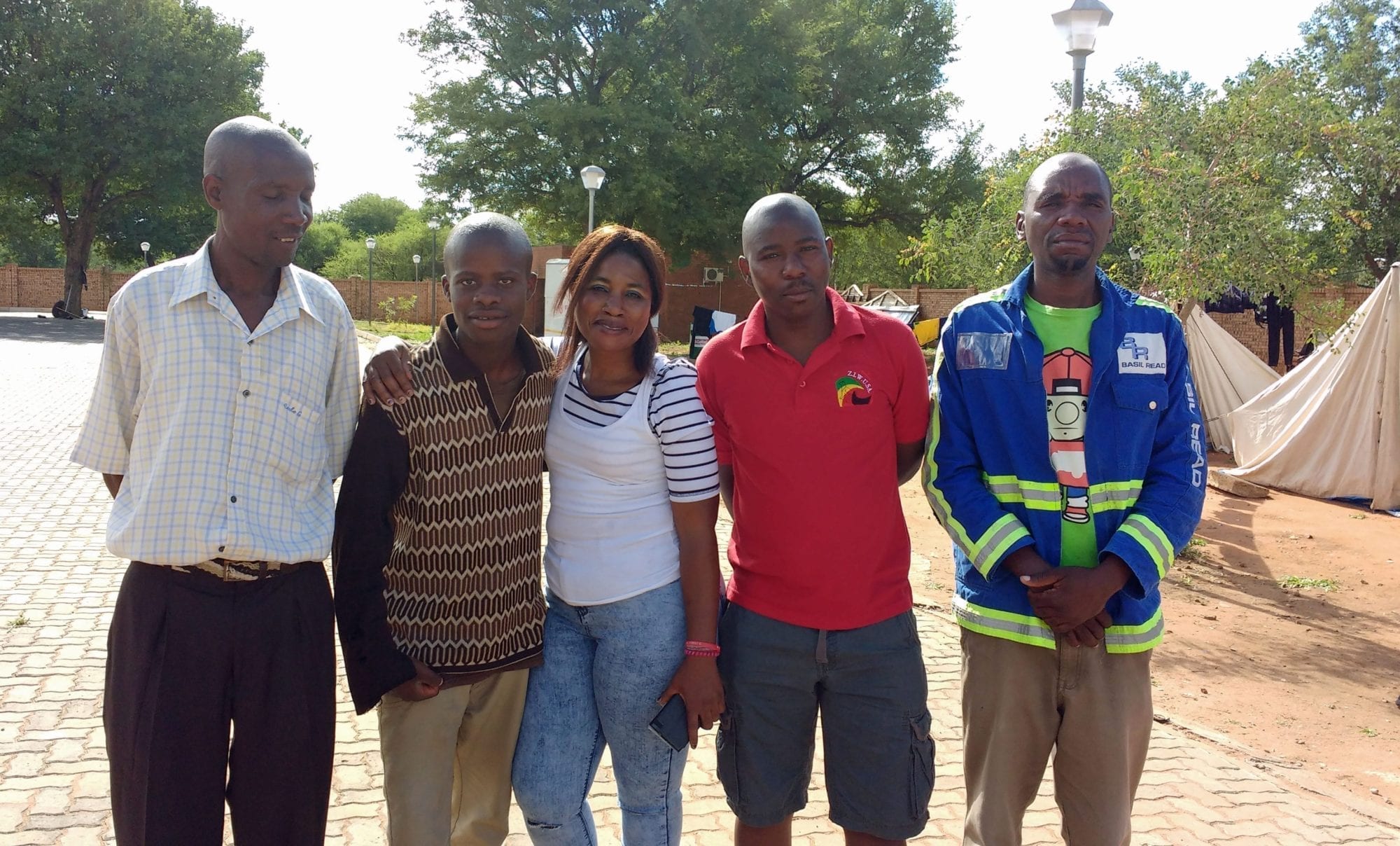
Jan 17, 2017
Edias was 12 years old when he traveled from Zimbabwe to South Africa to look for a job in agriculture. Now in his mid-twenties, he and other farm workers had been working 12 hour days, 7 days a week, and paid less than half the legal minimum wage when they asked the corporate farm owner for a raise last year.
Instead, they were assaulted and clubbed by a group of men led by the farm owner. Their homes—they lived on the farm—were burned. Edias described to Solidarity Center staff how he and four other workers were kidnapped, tortured and interrogated for hours before police arrived. (Find out how the Solidarity Center achieved justice for some of the migrant workers.)
Edias and his co-workers are among 34 million African migrants, the majority of whom are in search of decent work across borders. While an estimated 25 percent of African migrants are in Europe, the majority of migrants remain within the continent, often working in the most dangerous, unregulated jobs where they are paid little and have few rights.
Migration Conference to Address Trade Union Responses to Worker Exploitation
From January 25–27, the Solidarity Center will co-host a conference in Johannesburg, South Africa, that will bring together union leaders, migrant worker rights advocates and top international human rights officials from 22 countries and 57 organizations from around the globe to share strategies for empowering migrant workers throughout Africa.
“Achieving Fair Migration: Roles of African Trade Unions and Their Partners,” will explore best practices for asserting a worker rights agenda into national, regional and global migrant worker policies and examine tactics for strengthening cross-border and cross-regional cooperation among unions and other migrant rights organizations.
Maina Kiai, United Nations Special Rapporteur on the rights to freedom of assembly and of association, will keynote the conference and discuss findings from the landmark report his office presented to the UN last fall. “Migrants have become a massive, disposable, low-wage workforce excluded from remedies or realistic opportunities to bargain collectively for improved wages and working conditions,” according to the report.
Vame Jele, who heads up the Swaziland Migrant Mineworkers Association (SWAMMIWA), will be among some 100 conference participants. SWAMMIWA advocates for migrant workers, especially for migrant miners, truck drivers, forestry workers, domestic workers and farm workers
“Beside networking and establishing partnership with unions, organizations and associations, we aim to learn and share knowledge especially on how we can advocate,” says Jele. He also seeks to raise awareness “and call for solidarity” around the issues of former miners and their families.
Migrant miners who contract silicosis and tuberculosis from working without safety equipment are sent back to their origin countries with no support for medical care. As a result, Jele says, many former miners are dying and their families are in poverty because they have lost their primary breadwinner. SWAMMIWA last month coordinated a policy dialogue around migration issues in Swaziland and advocates to harmonize policies and regulations in the South Africa Development Community (SADC) to abolish inhumane treatment of migrant workers and involve migrant workers in union bargaining.
‘African Unions Can Take a Lead in Shaping Labor Migration Policies’
The prevalence of informal jobs and the lack of recognition of migrant worker’s status “creates opportunities for exploitation and difficulties for unions to organize and represent migrant workers,” says Caroline Mugalla, executive secretary of the East African Trade Union Confederation (EATUC), who also will participate in the conference.
“And as women migrant workers become a larger component of migration, particular challenges arise as they tend to be relegated to the informal economy, face sexual harassment and gender-based violence in the workplace more often than men, and experience nationality and gender-based economic and social discrimination in the workplace.”
The “Fair Labor Migration” conference provides a forum for African trade unionists to coordinate strategies for reaching out to and empowering migrant workers, many of whom are part of the large and growing informal economy. Participants will discuss shaping a trade union agenda against xenophobia and racism, including strategies for tackling discrimination and xenophobia in unionized and non-unionized workplaces; the challenges of organizing and addressing migrant worker exploitation in the informal sector; increasing opportunities for migrant workers to exercise their rights and access justice; and labor protections.
“African trade unions can take a lead in helping shape the global governance of migration and promoting migrant worker rights at all levels of government,” says Solidarity Center Africa Regional Director Imani Countess.
“Government officials, businesses and corporate interests have sought to ‘manage’ the movement of migrants like everyday commodities through temporary migration programs and unregulated migration flows that benefit employers at the expense of workers.” The “Achieving Fair Migration” conference will provide a forum for exploring how to enhance African labor voices in global and regional migration governance policy.
The conference, co-sponsored by the African Regional Organization of the International Trade Union Confederation (ITUC-Africa), will include regional breakouts and opportunity for discussion around area-specific migration issues and hands-on strategic workshops with concrete action plans on union cross-border cooperation, organizing migrant workers and more.
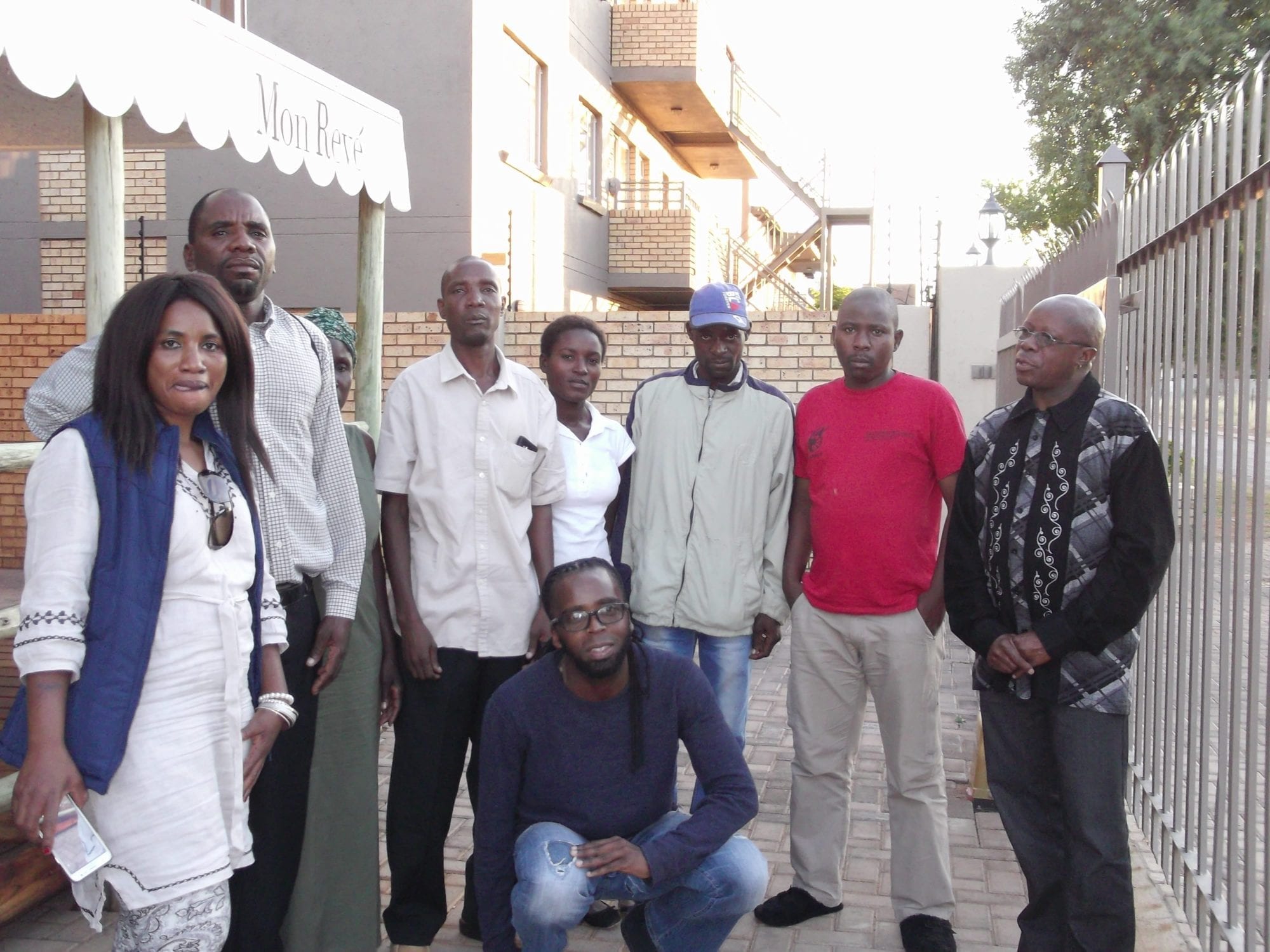
May 18, 2016
Some of the 245 Zimbabwe migrant farm workers brutalized and evicted last September from a large farm in South Africa, where many had toiled for years, have now been vindicated in court.
In a recent court hearing in South Africa, a judge rejected the farm owner’s argument that the workers were on extended strike and should not be compensated or reinstated. The judge offered the workers back pay or reinstatement, and the seven workers present opted for reinstatement to the farm at the legally determined wage.
The judge indicated he could reinstate only workers who were present, and with the assistance of South African Food and Allied Workers Union (FAWU), the seven workers have begun searching for the other workers.
Zimbabwe Migrant Farm Workers Driven from Their Homes
Last August, the Zimbabwean migrant farm workers, who labored on four vegetable farms operated by Johannesburg Farm, asked for a 59-cent-per-day pay increase. The workers, who were paid $120 month, roughly half the legal minimum wage, regularly put in 12-hour days, seven days a week, and were forced to toil 17-hour days during the harvest.
In September and according to witnesses, a group of men led by the farm owner fired rubber bullets at the workers’ homes, setting some on fire to drive workers out of their houses, where they were assaulted and clubbed. One of the workers, Edias, told Solidarity Center staff that he and four other workers were then kidnapped, tortured and interrogated for hours before police arrived. (For farm workers’ safety, we are using first names only.)
Unable to look for other jobs because the farm owner had confiscated their work papers, Edias and the others traveled to a refugee camp in Lephalale, South Africa, where they arrived in December near starvation.
Criminal Case and Wage Case Pending
Two other cases are pending. One involves a criminal hearing, set for late August, on the kidnapping and torture of the farm workers. South Africa’s Labor Department is leading the second case, which focuses on the issue of wage law violations. The Labor Department has the authority to demand back wages to January 1, 2015—which total more than $100,000—and assess penalties for violating the law.
Along with FAWU and the Migrant Workers’ Union of South Africa (MIWUSA), the Solidarity Center has provided key support to the Zimbabwe migrant workers, enabling them to be represented in court, offering material aid, generating public attention for their plight and raising awareness of the often brutal working conditions of migrant workers across South Africa.
The workers who are returning to the farm say they will post the ruling on minimum wages for farm workers and tell Solidarity Center staff that they feel vindicated—like human beings with standing and rights, according to one worker.
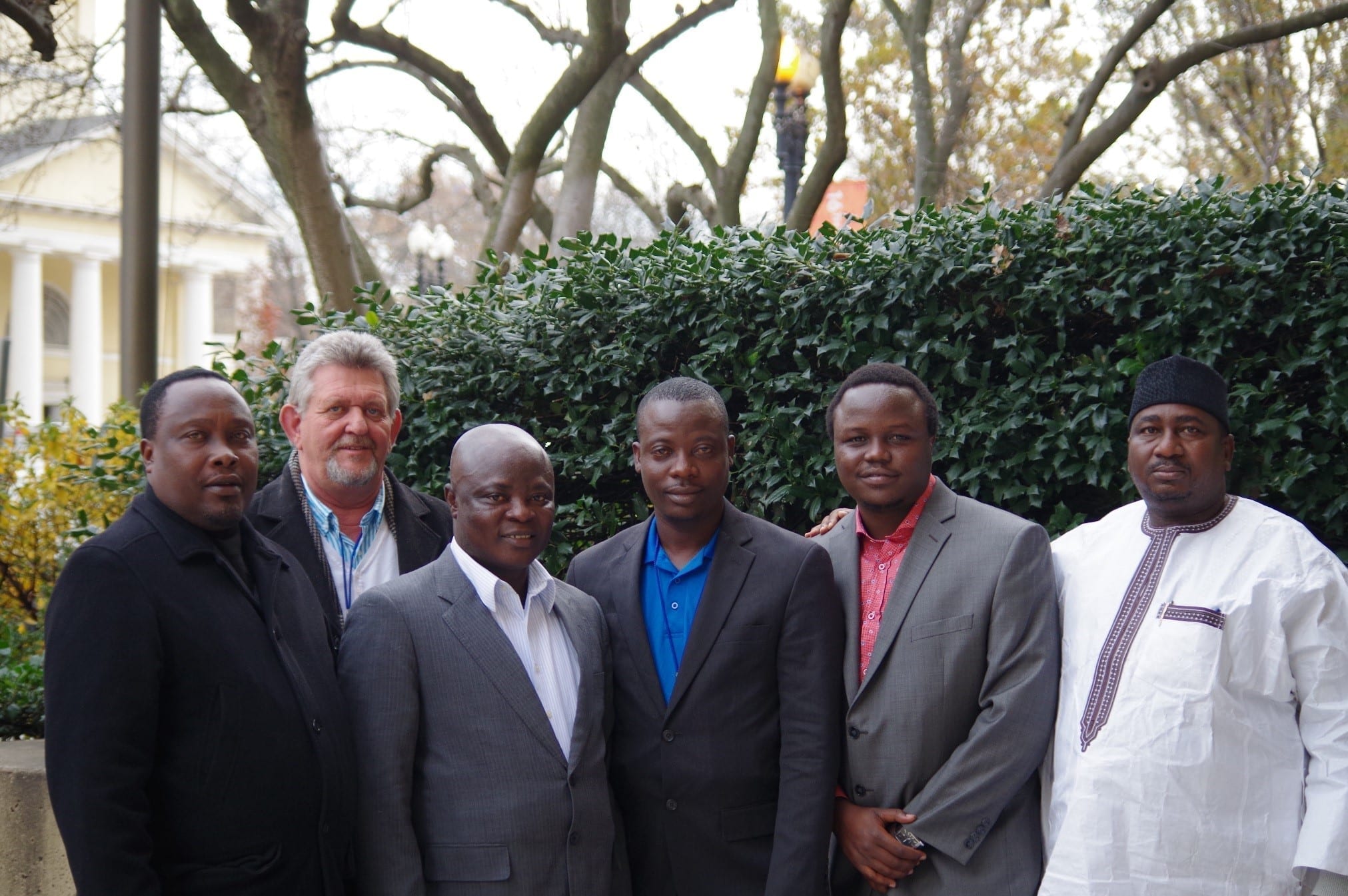
Dec 10, 2015
Addressing unemployment and underemployment, especially for young workers, is the most pressing issue for trade unions across Africa, according to participants in an African Labor Leaders Exchange Program sponsored by the Solidarity Center.
Speaking at a December 9 panel discussion at the AFL-CIO in Washington, D.C., six union leaders from Kenya, Liberia, Nigeria and South Africa discussed the challenges in securing economic prosperity for working people—and their strategies for empowering workers in the formal and informal economies.
“What faces us is high levels of unemployment, poverty,” said Edward de Klerk, deputy general secretary of South Africa’s United National Transport Union (UNTU).
“Unemployment is an African issue,” said Philip Kwoba, director of Youth Organizing with the Central Organization of Trade Unions (COTU) in Kenya. Unions in Kenya are reaching out to informal economy workers, which include many young workers, helping them form worker savings associations as a step toward unionization and gaining bargaining rights. “We are allocating resources to help,” said Kwoba.
Members of the panel, moderated by Solidarity Center Regional Program Director for Africa Imani Countess, said poverty also is fueled by low wages. “Wage inequality is this battle still we have got,” said de Klerk. In Nigeria, unions are tackling wage issues by addressing government policies that reduce the pay of public-employees, including teachers, said Muhammed Nasir Idris, National Treasurer Nigeria Union of Teachers (NUT).
Lack of employment opportunity and poverty in Liberia puts youth at risk of labor trafficking within the country’s borders, said Liberia Labor Congress (LLC) General Secretary David Sackoh.
Sackoh said labor recruiters take children from parents in their villages, promising the children will go to school in the city. Instead, the children are used in forced labor. “Even though our research shows (the children) want to return,” they are unable to do so for seven to 10 years,” he said.
Sackoh pointed to the Liberian trade union movement’s tremendous victory in eradicating child labor at the Firestone Natural Rubber Liberia plantation, and said the union movement now is working to address the issue at the seven other plantations across the country.
During questions with the audience, which included a packed crowd of union activists, policy experts and international experts, union leaders also discussed drawing more women into trade union leadership.
“Getting women elected to high offices is now on the union agenda,” said Boniface Kavuvi, general secretary of the Kenya Union of Commercial, Food and Allied Workers (KUCFAW). Kavuvi pointed to domestic workers in Kenya, represented by KUDHEIHA, as an example of dynamic organizing and strong leadership by women in Kenya. “They have done a tremendous job,” he said.
In Liberia, unions are pushing for 30 percent representation by women in union leadership, mirroring the country’s effort to increase women’s representation in the national legislature, said Isaac Grant, LLC organizing coordinator.
The six union leaders traveled to the United States for a South–South labor leaders’ exchange in which African labor leaders met with community and trade union organizers across the southern United States. The Solidarity Center worked with the U.S.-based labor education program, the National Labor Leadership Initiative (NLLI), to facilitate the exchange, sponsored by the U.S. Department of State’s Bureau of Educational and Cultural Affairs.
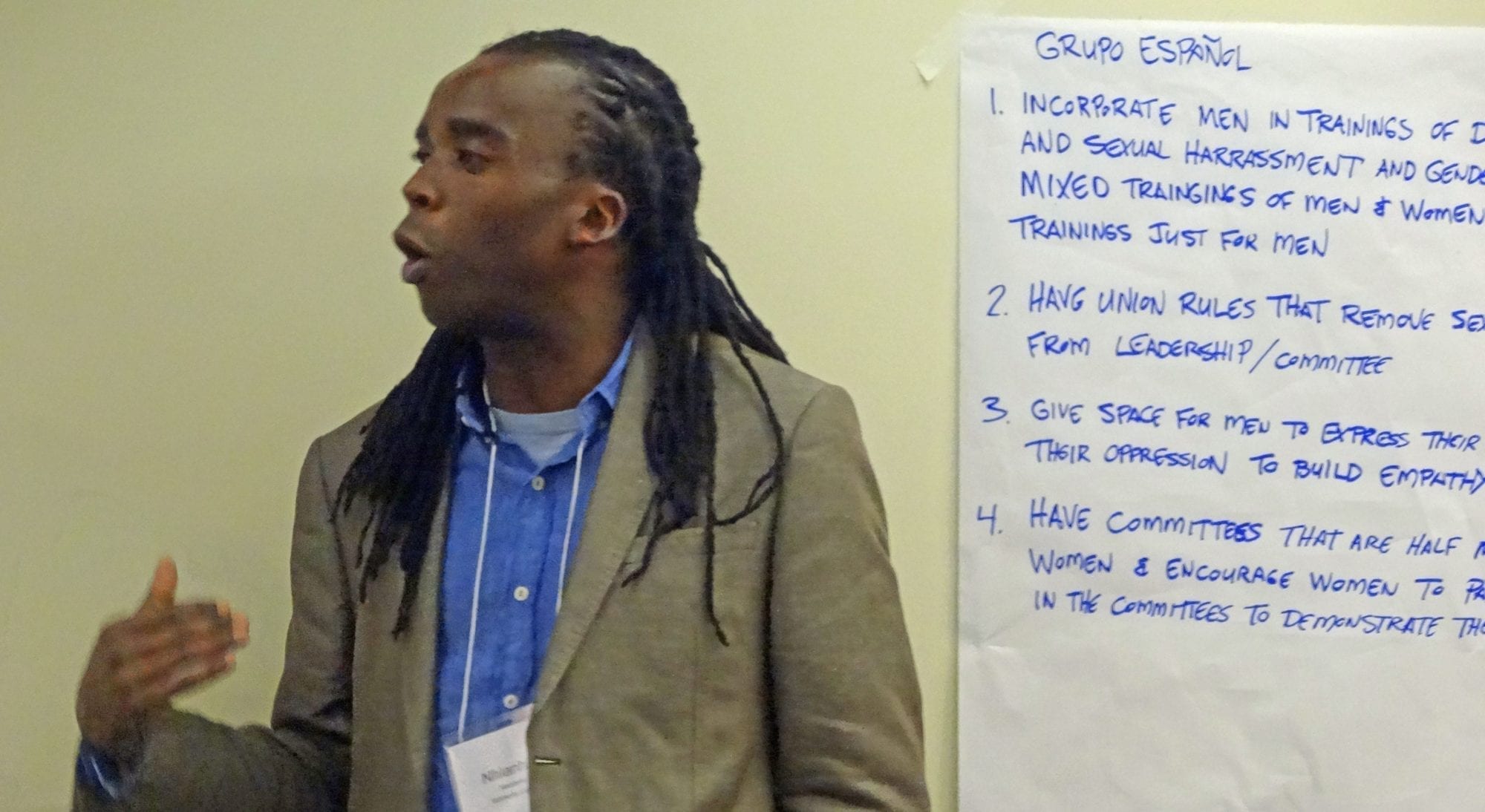
Oct 30, 2015
Nhlanhla Mabizela says he first truly grasped the meaning of gender inequality on a winter day in the dusty streets of Alexandra Township in post-apartheid South Africa.
Cutting through an alley surrounded by houses made of iron scrap and plastic sheets, Mabizela and a friend came across a group of children playing. All were barefoot in the cold, with a single layer of clothes he assumed were the only ones they owned.
“Guess the first thing that popped in our minds?” asks Mabizela, Solidarity Center program officer for gender. “Where are the mothers of these children?” Seconds later, he and his friend encountered groups of men sitting around a fire, drinking and laughing. Nearby, they also saw a woman doing laundry in a large corrugated bathtub, her hands immersed in icy water.
“There and then we had the answer to our question and a new one was born and it was, ‘What is happening in the mens’ minds?’ That was the day when it dawned on me that gender inequality is alive and some of us are quite comfortable with it.”
Solidarity Center Helps Unions Put Gender Equality into Practice
Solidarity Center programs around the world address gender inequality at the workplace and within unions and society. In South Africa, Mabizela holds trainings to empower women to join unions and take leadership roles and advocate for themselves and their families. Crucially, his workshops also focus on helping men understand cultural expectations and how those assumptions shape male leadership roles that are based on excluding women.
Mabizela’s work highlights a frequent dichotomy. Unions are key drivers in advancing gender equality. Yet in many countries around the world, there is a disconnect between labor union policy and practice in transforming gender inequalities within their own structures. Through the lens of the South African union movement, a new report commissioned by the Solidarity Center explores the disconnect and examines new strategies for closing the gap between policy and practice.
“Putting Union Gender Equality into Practice: The Role of Transformational Leadership” describes how “feminist leadership” can be encouraged within the South African trade union context in part by creating a democratic organizational culture and an environment that supports women workers in their struggle for emancipation and assists men to free themselves from patriarchal forms of power.
“We have internalized and institutionalized gender roles and the division of labor,” says Mabizela. “We have failed as a country to interrogate patriarchy and hence we will move four steps forward and six steps backwards. We are so immersed in the debates about political power at the expense of all the other oppressions in sexism.”
‘Everything Is Structured around Men’
South African unions and federations long have sought to redefine and reshape patriarchal structures, cultures and practices to better inhere gender equality. Beginning in 2005, several South African unions sought to develop alternative models of power after recognizing that male-dominated, hierarchical, union culture does not easily address such issues as violence against women and sexual harassment of women within the union. They took part in Gender at Work’s South African Gender Action Learning Program to employ gender-inclusive and accountable power building and power sharing.
Authors of the new study interviewed the men who took part, and reported that they expressed an appreciation of how, by challenging male stereotyped behaviors and aspects of patriarchal power relations, they have enriched their private and public relationships and strengthened their commitment to gender equality.
“The much broader question is the need to look at how male culture influences everything—how everything is structured around men,” says John Apollis, a leader from the General Industrial Workers Union (GIWUSA) who is quoted in the report. “We need a fundamental reorganization of the union otherwise we are not going to get far with breaking male dominance.”
Some of the men also noted they struggle with alienation by their peers, who see their efforts to incorporate gender equality in the union and at home as setting them apart from traditional male roles.
‘I Would Not Like to Rehash What Our Fathers Did’
Mabizela says he was aware of gender inequality even in childhood, when the girls would “disappear” after school to wash dishes or clean house, while the boys played outside.
But the winter day in Alexandria Township spurred him to “reflect on how easy it was for us (me and my friend) both men, to put the burden of care squarely on women’s shoulders and be oblivious to the effects of gender-based violence. That day still exists in many parts of this world and not only in shanty towns of South Africa, but also in the leafy suburbs of the affluent.”
As Solidarity Center gender program officer, Mabizela also works with other organizations to campaign for passage of national laws, like a minimum wage for South Africa’s 1 million domestic workers which became law last December. Parliament currently is considering an expanded maternity leave law that incorporates significant input by the Solidarity Center.
He works with four South African union federations on the International Trade Union Confederation’s Labor Rights for Women Campaign and assists federations in developing sexual harassment policies and gender policies. He brings to his work experience as a peer educator for me at Planned Parenthood of South Africa and as a program officer for EngenderHealth’s Men as Partners Program.
In striving to embody the change essential for advancing gender equality in South Africa, Mabizela is blazing a trail for others. When describing the influences that motivate his work, Mabizela says he often thinks about how much he yearned to have a father in his life when he was a child—an experience he later learned was not uncommon.
Now, as the father of an 11-year-old son, Mabizela says, “the thought that I would not like to rehash what our fathers did, motivates me to do the work that I do. Observing my son grow, and developing confidence and not being afraid to show his emotions—it is enough motivation to carry on for his sake and the betterment of our societies.”






